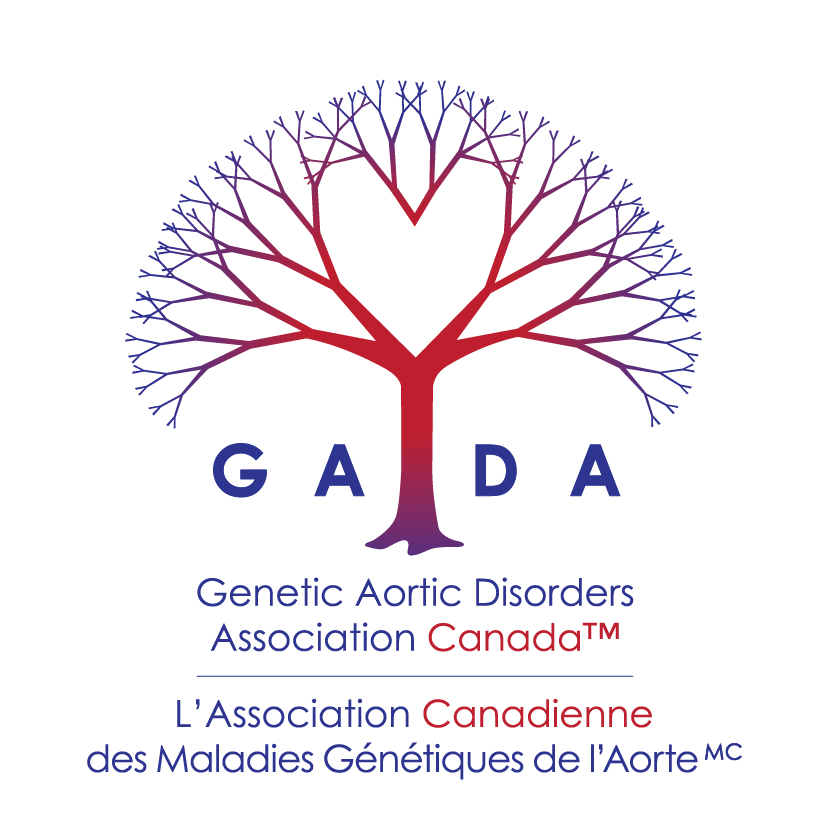Join us for a clinical webinar to highlight a newly published Genomic Medicine Guidance app developed from UTHealth. The app is designed to enable clinicians to use this resource as a decision support tool and share information easier with patients.
The app is developed with a goal to integrate easy access to gene-based management for heritable aortic disorders in clinical practice and improve recognition and treatment of patients. For patients, consider sharing this app with your physicians to help empower your specialist care. You must have been genetically diagnosed and know your diagnosis.
Dr. Siddharth Prakash, Cardiologist, UTHealth, and Dr. David Murdock, Clinical Geneticist, UTHealth, will present the current version of the Genomic Medicine Guidance app and their visions to use the app for research to expand the spectrum of genetic variants causing heritable aortic disorders and to integrate facial recognition in the app for improved management. Genetic testing for heritable aortic disorders is essential, to determine personal and family risks for life-threatening aortic dissections and to guide the management of associated complications.
The genetic information in the app was sourced from the GADA-funded Montalcino Aortic Consortium registry and the NIH genetic repositories ClinVar and ClinGen. GADA Canada and the John Ritter Foundation are hosting this joint webinar. The webinar is free, but registration is required.
ABOUT THE SPEAKERS:
Siddharth Prakash, MD, PhD.
University of Texas Health Science Center (UTHealth), Internal Medicine, Houston, Texas
Dr. Siddharth Prakash, is an associate professor at McGovern Medical School at The University of Texas Health Science Center at Houston (UTHealth). Board certified in cardiovascular disease and internal medicine, Dr. Prakash’s clinical interests center on bicuspid aortic valve, thoracic aortic aneurysm, and adult congenital heart disease in patients 17 and older. His research concentrates on the genetic causes of bicuspid aortic valves and related congenital abnormalities involving the left ventricular outflow tract and aorta. Dr. Prakash’s practice philosophy includes continuous assessment, participation in research, and guideline-based therapies. Patients rely on him for long-term care and clear answers regarding their genetic conditions and prognosis due to his strong emphasis in genetic counseling, screening and surveillance for patients and families with congenital heart disease
David R. Murdock, MD.
University of Texas Health Science Center (UTHealth), Internal Medicine - Division of Medical Genetics, Houston, Texas
Dr. David R. Murdock, is an assistant professor at McGovern Medical School at The University of Texas Health Science Center at Houston (UTHealth).
Dr. Murdock is board certified in internal medicine, clinical genetics, and molecular genetics. His career focus is on improving outcomes for individuals with thoracic aortic disease (TAD). He aims to achieve this by employing advanced molecular and computational techniques to study the genetic factors driving aortic pathology. Additionally, he leads innovative efforts to integrate artificial intelligence (AI) into both screening and treatment of TAD, including use of facial pattern recognition for early diagnosis. Through his research, Dr. Murdock aims to better identify individuals at risk for TAD and leverage this understanding to enhance treatment strategies.
EVENT DISCLAIMER: The contents of this GADA Canada hosted virtual event, such as presentations, discussions, text, graphics, images, and other materials created or presented by GADA Canada and by others appearing in the event at the invitation of GADA Canada are for educational and informational purposes only. GADA Canada is a voluntary health organization and is not engaged in rendering medical advice or recommendations on diagnosis or treatment of genetic aortic disorders. The content within this virtual event or the GADA website, www.gadacanada.ca, should not replace necessary consultations with qualified health care professionals for medical advice, diagnosis, or treatment.
Genetic aortic disorders are complex, multi-system disorders that can only be properly diagnosed and managed by skilled and trained health care professionals. The manifestations and severity of these disorders vary greatly among individuals and require personalized medical management. None of the medications, courses of treatment or lifestyle & activity recommendations discussed in this virtual event should be undertaken without being discussed with your physician.

